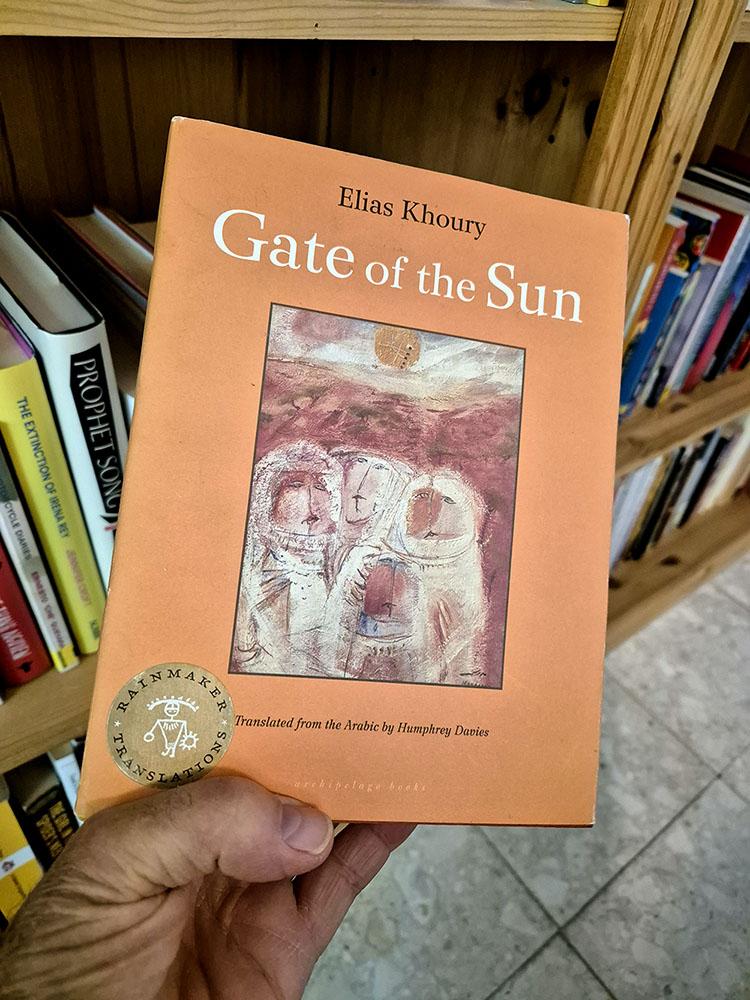A few words from the editors on the passing of Elias Khoury, on September 15, 2024.
I awoke this morning to the devastating news of the loss of my very dear friend Elias Khoury. To his wife Najla, his children, and extended family, my profound condolences. I had a premonition as I’d been trying to call all last week to see how he was, but no response. I’m not even sure when we first met as my own chronologies seem to have become as jumbled and intricate as some of Elias’s stories since, if we allow ourselves to, it turns out we do actually live in a constantly present Nakba, a catastrophe now manifesting itself in the genocide taking place in Gaza and, increasingly, the rest of the occupied territories. I will forever treasure Elias’s utter irreverence for all forms of officialdom, his humor, his profound humanity, and the wounds he suffered on behalf of others and things greater than himself. As our dear mutual friend Anton Shammas wrote me since hearing the news: “I’ve been trying to collect the shards of my heart.”
—Ammiel Alcalay
This morning, I happened to notice my hard back copy of Elias Khoury’s Gate of the Sun, in its Humphrey Davies translation, published by the New York nonprofit press, Archipelago Books, in 2005. The book has been sitting in a prominent place on the shelf in my new flat since I moved in, and a few hours ago, its presence jumped out at me. At that very hour, as it happens, Elias Khoury passed away in Beirut. I had heard he was struggling with ill health, but had been unable to reach him through the usual channels. We met in Los Angeles of all places, many years ago, at the home of a mutual friend, Lebanese painter Huguette Caland. Like many of his acolytes, I shared with Khoury a passion for Arab culture, and the Palestinian cause for freedom and justice. With alacrity, Khoury joined the advisory board of the Los Angeles cultural center a few of us had started some years before, an advisory which included Saree Makdisi, Reza Aslan, Ammiel Alcalay and the poet Peter Cole, among others. Of course, Khoury cast a long shadow, as many consider his novel Bab al-Shams to be a classic of Arab literature, translated into many languages. As a critic writing in Le Nouvel Observateur noted, “Gate of the Sun can never really be closed…how to close this book without beginning or end…?” The legacy of the Palestinian story the novel portrays with literary brilliance is still ongoing, as Palestine’s suffering continues while its longing for freedom has not come to fruition. The war on Gaza is not over, and the settlers in the West Bank continue to make life for Palestinians there nearly intolerable. What would help us best remember and commemorate the work of Elias Khoury would be, at long last, a non-military solution to one of the world’s longest military occupations, and an end to the longest apartheid the world has known since 1948. Rest in peace, Elias. Thank you for your words.
—Jordan Elgrably
I’ve read most of Elias Khoury’s literary works. Despite never having met him in person, I felt a profound connection to his ideas and convictions through his writing. Many others who have followed his distinguished career likely share this sentiment.
Khoury’s writing reflected a remarkable generosity of thought and an unwavering commitment to honesty. He staunchly believed that injustice, regardless of its form or target, was unequivocally wrong. As an Arab intellectual, he ardently battled extremism in all its manifestations while steadfastly upholding his principles. His unwavering support for the Palestinian cause earned him a reputation as a resolute advocate.
I found his seminal works, such as Gate of the Sun (which I re-read last summer) and Children of the Ghetto, to be invaluable in shaping my socio-political awareness of the Middle East. Despite having studied at AUB, it was years later, through Khoury’s literary masterpieces that I gained a profound understanding of Lebanon’s intricate socio-political landscape. With every book, I rediscovered my compassion and affection for the country and its people, as well as for the broader Arab region and why, as a region and people, we are where we find ourselves today.
The void left by Khoury’s absence feels akin to losing a close friend and mentor and his passing represents an immeasurable loss for Arab literature as a whole.
—Rana Asfour




